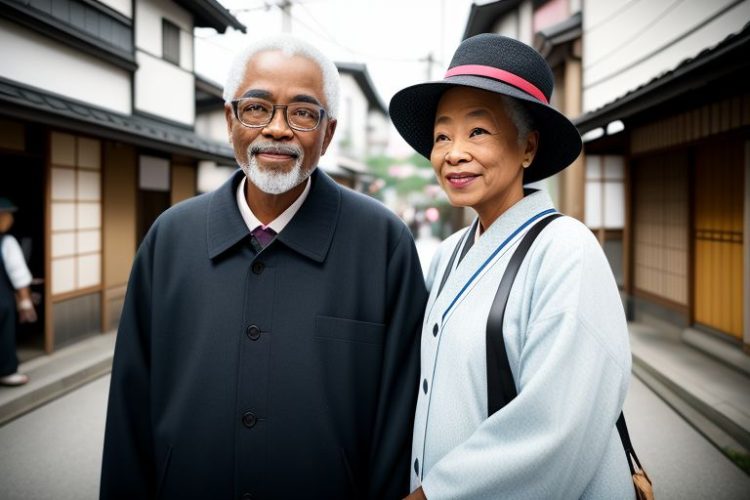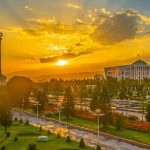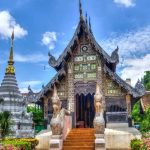Introduction
Retiring to East Asia offers an exciting opportunity to be exposed to a mix of age-old traditions and ultramodern facilities. From diverse landscapes and rich histories that envelop the culture of each country to dynamic cities, there’s so much that this vibrant region has in store for retirees looking for adventure and a new way of life. Be it the vibrant streets of Tokyo, the historic beauty of Beijing, or the tropical charm of Bali, retiring to any country in East Asia can be very enriching. This blog post covers some of the major factors for retirement in East Asia: cost of living, healthcare, cultural integration, and lifestyle.
a. Cost of Living in East Asia
One of the most central issues in retiring abroad is the cost of living. East Asia has varied those depending on which country and city one chooses to retire in. Cities like Tokyo and Hong Kong are considered among those ranked as being some of the most costly in terms of housing and daily expenses. Others, like Chiang Mai in Thailand or Da Nang in Vietnam, offer quite an affordable lifestyle with lower costs of living regarding house, food, and transport.
Whereas this is the case, housing, dining out, and entertainment will be more expensive in major metropolitan areas than in smaller cities or rural areas. Therefore, budgeting and researching specific costs from your destination is very important. Many retirees find that their pension or other savings stretch further in less expensive locales, thereby maintaining a comfortable lifestyle while creating new opportunities.
Healthcare in East Asia
While the quality of healthcare does vary in this region, most countries in East Asia generally have excellent services available. It is possible to find state-of-the-art hospitals and clinics, particularly in larger cities like Tokyo, Seoul, and Shanghai, that are equipped with modern technologies and have staff who quite often speak English. For a retiree, accessibility to healthcare is most important, and East Asia generally offers good options in this regard.
Another vital element to be considered when retiring abroad is health insurance. International health insurance plans may include full health coverage both in times of emergency and for routine care. While most countries have a public healthcare system, not all of them ensure comprehensive coverage for expatriates; therefore, having a good private insurance plan always comes in handy. Besides, get familiar with local healthcare facilities and services and be prepared for any kind of medical need.
Cultural Integration and Language
If you really wish to enjoy your retirement abroad, cultural integration is important. East Asia is simply a wonderfully diverse region in itself. Every country has different customs and traditions apart from the social norms of people. That is why knowing the local culture can increase the pleasure of your stay and bring you closer to the locals.
One of the challenging factors in most East Asian countries is the language barrier, where usually Mandarin, Japanese, Korean, and Thai are spoken. Although English is broadly spoken in tourist areas and by the young, it would be very helpful to have some basic phrases in the local languages. It helps one in daily living, relating with locals, and showing respect toward their culture.
Engage in local activities, take up new clubs or interest groups, and really get out to events in your community. This may involve learning the local arts, sampling new foods, or participating in festivals. All of these will enhance your experience in your new home and really make your retirement journey more enriching.
Lifestyle and Leisure
There is immense diversity in the kind of lifestyles that different locations can offer in East Asia: dynamic city living versus serene countryside retreats. Large cities offer a fast pace of life and all its attendant benefits, cultural happenings, and social activities. For instance, Tokyo and Seoul are major spots for a lively city environment, while places like Bangkok or Taipei would be representative for more balanced locations in terms of modernity and tradition.
If you are more towards a quiet and simple life, look at places with small towns or rural areas. Hoi An in Vietnam and Okinawa in Japan are cities located in places with beautiful natural surroundings, a slow pace of life, and a sense of community. These areas can provide serene surroundings for retirement while still having access to essential services and some attractions.
Legal and Visa Considerations
Understanding the visa requirements and residency regulations is important upon deciding to retire to most countries in East Asia. Each country has its own policy for visas and rules for residency that can impact your ability to live and remain long-term. Some, like Japan and South Korea, may require special visas for retirees generally tied to an income or investment stipulation.
Research the available visa options for your target country, and make sure that you meet all of the requirements for these. It would be very useful to consult an immigration expert or legal adviser who will guide you through the process of application and further compliance with local laws regarding your stay.
Social and Community Life
Having a social network and a sense of community is so important in retirement. East Asia offers great opportunities to allow the retiree to get involved with others through expatriate groups, local clubs, or volunteer organizations. This kind of involvement with both local residents and fellow expatriates could provide a support system in adjusting to a new environment.
Most of the cities have vibrant expatriate communities that can organize social events, cultural activities, and support groups. It can be very useful to belong to such a community in making new friends, sharing experiences, and finding one’s way about better in a new place. Moreover, getting involved in local volunteer opportunities gives you a sense of purpose and adds to the community.
Travel and Exploration
Travel opportunities are huge upon retirement in East Asia. Dynamic landscapes range from beautiful beaches to green mountains and historical temples, busy markets, and more. Each country, whether China, Japan, Thailand, or Vietnam, has its own special attractions and experiences waiting to be had.
Use this opportunity to engage with the culture and natural beauty that this region holds, be it through ancient temples, scenic hiking, or city vibes. There is something for everyone in East Asia. Exploring other countries nearby can also become a great way to learn about different cultures and widen your horizons.
Conclusion
When one retires to East Asia, he will encounter many opportunities for a new culture, varied lifestyle, and region rich in history and natural beauty. You can take into consideration various factors—cost of living, healthcare, cultural integration, and legal requirements—to help you make an informed decision regarding the destination of your choice for retirement. Embrace the local culture, learn the language, and engage with your new community; it will be only then that you truly enjoy your retirement abroad.
If planned cautiously and with an open mind, retiring in East Asia can be rewarding, fulfilling, and full of adventures as much as relaxing in one of the most fascinating parts of the world.
Related posts:

Ray Brocklesby, the site owner, is a Brit who now lives in the Philippines. He is retired and lives with his wife Weng, Daughter Kristelle, nephews, Harvey and Boknoy, and mother-in-law. Ray also has a son and daughter living in the UK, and a son in New Zealand.













